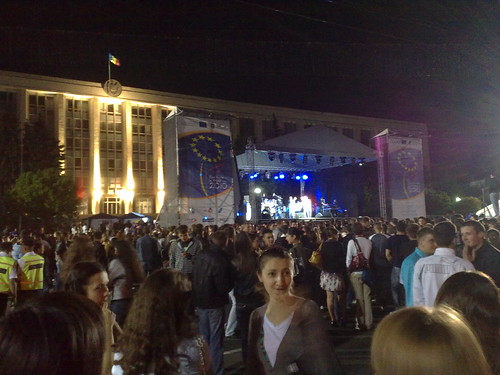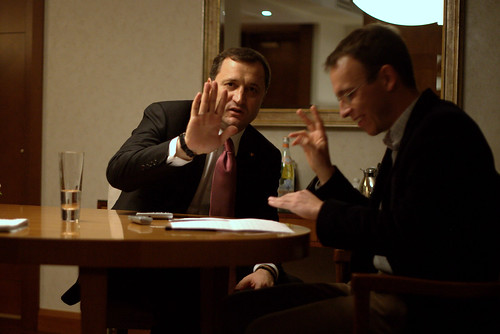Ukraine’s 2014: a belated 1989 or another failed 2004?
By Sean L Hanley, on 19 February 2014
Whatever their final outcome, the events in Ukraine seem likely to be of greater long-term import than the ‘Orange Revolution’ in 2004. But, asks Andrew Wilson, a long-term what?
Whatever their outcome, the events in Ukraine seem likely to be of greater long-term import than the ‘Orange Revolution’ in 2004. Ukrainians themselves are obviously debating their meaning and making comparisons with other momentous years in Ukrainian and general European history. But which year?
This is not about geopolitics: this isn’t 1939, some replay of the Molotov-Ribbentrop Pact with two titans dividing up Eastern Europe. Russia thinks geopolitically, but the EU does not, and until fairly recently the US has been just a voice offstage. The whole point of the debacle at the Vilnius Summit was the clash between the completely different modus operandi of Russia and the EU.
There hasn’t been a proper post-Vilnius post-mortem yet (you can’t have a post-mortem till you identify the body). A technical rethink of the EU’s Eastern Partnership policy is inevitable. But the whole point is that it is too technical. As I said to the NYT, the EU took a baguette to a knife fight. The Eastern Partnership is an ‘enlargement-lite’ policy at the very moment when Russia is committed to some heavy lifting. If there is a ‘struggle over Ukraine’, as so much of the media is determined to frame it, it is clearly a very unequal struggle. (more…)
 Close
Close








